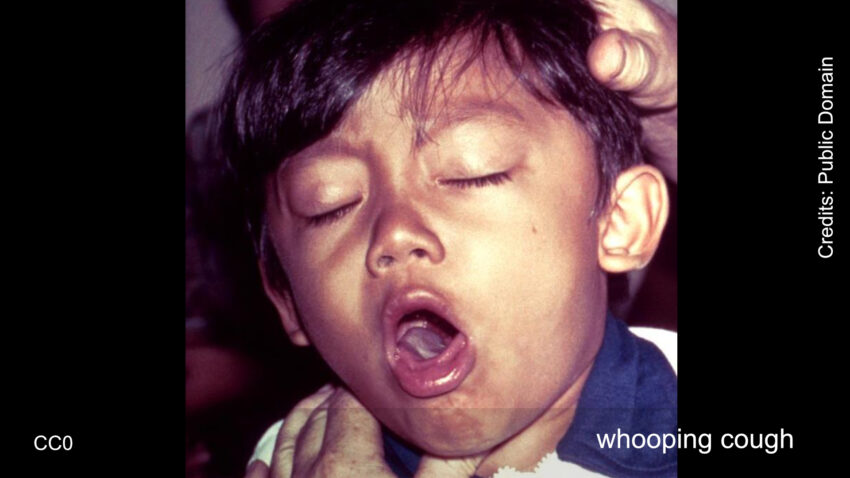The United States is experiencing a notable surge in whooping cough cases, reaching levels not seen in nearly a decade for this time of year. According to the latest figures from the Centers for Disease Control and Prevention (CDC), there have been 18,506 reported cases of whooping cough, also known as pertussis, so far this year. This marks the highest incidence since 2014, when the number exceeded 21,800 by this point in the year.
- Surge in Whooping Cough Cases: The U.S. is experiencing a significant increase in whooping cough (pertussis) cases, with over 18,500 reported so far this year, marking the highest level since 2014.
- Vaccine Exemptions and Low Rates: A decline in vaccination rates and an increase in vaccine exemptions are contributing factors to the resurgence, particularly affecting school-aged children and teenagers.
- Highly Contagious Disease: Whooping cough is highly contagious and dangerous for infants and young children. The “100-day cough” can last for months, and vaccination remains the most effective preventive measure.
- Public Health Concerns: Health officials are urging parents to ensure their children are vaccinated, as most outbreaks are occurring in schools and among teens, who can spread the disease rapidly.
Health officials have anticipated this rise, as whooping cough typically follows a cycle of peaking every three to five years. However, the current numbers have prompted concern among state health departments, particularly in states like Wisconsin, where cases have escalated to approximately 1,000 this year, a stark increase from just 51 last year. Various news outlets have reported on the CDC’s recent release of state figures, revealing that kindergarten vaccination rates have dipped, and vaccine exemptions have hit an all-time high. This trend is seen as a contributing factor to the uptick in cases.
Whooping cough is a highly contagious respiratory disease that begins with symptoms similar to the common cold, such as a runny nose, before progressing to a severe and prolonged cough. Often referred to as the “100-day cough,” it can last for months and is particularly dangerous for infants and young children, who are at risk of serious complications. The disease can be treated with antibiotics, and vaccination remains the most effective preventive measure. The pertussis vaccine, introduced in the 1950s, is part of the routine childhood immunization schedule and is recommended for adults every 10 years.
Public health workers are especially concerned about outbreaks among older children and teenagers. In Pennsylvania, for example, most outbreaks have been reported in middle school, high school, and college settings. Similarly, in Douglas County, Nebraska, cases have predominantly affected school-aged children and teens, highlighting the need for increased awareness and vaccination efforts in these age groups.
Medical experts emphasize the importance of early testing and treatment with antibiotics to prevent the spread of whooping cough. Dr. Kris Bryant, a specialist in pediatric infectious diseases, underscores the critical role of vaccines in preventing pertussis and highlights the availability of safe and effective vaccines. However, with vaccination rates declining, health officials are urging parents and guardians to ensure their children are up-to-date with their immunizations.
As the country continues to navigate post-pandemic challenges, the resurgence of whooping cough serves as a stark reminder of the importance of maintaining high vaccination rates to protect public health.

